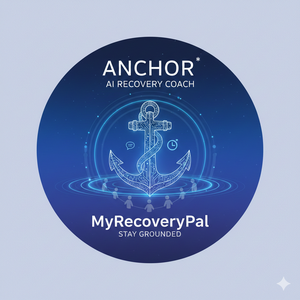
In recovery, there comes a moment when we realize that sheer willpower can only carry us so far. Step Two in the Big Book of Alcoholics Anonymous says, “Came to believe that a Power greater than ourselves could restore us to sanity.” For many of us, that concept feels foreign — especially if we’ve tried every self-help trick in the book. Yet countless AA testimonies show that when we surrender our need to control every outcome, we open the door to lasting peace and resilience.
Why a Higher Power Matters
Recovery literature is clear: when we rely solely on ourselves, we wear down. The Big Book is full of stories where men and women try and fail again and again — until they surrender to something greater. This “Power” offers:
- Perspective: A reminder that our problem isn’t the problem — our resistance is.
- Relief: A safe place to deposit fears and burdens, rather than carrying them alone.
- Guidance: An inner compass that nudges us toward right action when our own judgment falters.
What Your Higher Power Can Be
Your Higher Power doesn’t have to be a deity in traditional terms. It can be:
- Nature: The vastness of a mountain range or the rhythm of the ocean.
- Community: The collective wisdom and support of your recovery group.
- The Universe: A sense of interconnected energy that flows through every living thing.
- Inner Self: Your own truest values and deepest intuition, personified as a guiding “voice.”
I chose my Higher Power to be God Himself — not out of obligation to any particular religion, but because spirituality is at the heart of recovery. Religion can have its place — ritual, structure, community — but it’s the personal, profound spiritual connection that truly sustains us. I’ve had my deepest spiritual moments in AA meetings: in that circle of “fellow drunks,” I’ve heard God speak more clearly than anywhere else.
Benefits of Releasing Control
When you choose to let go and let your Higher Power steer:
- Anxiety Drops: You stop spinning in “what-ifs” and ground in “what-is.”
- Clarity Grows: Decisions become easier when you’re not exhausting yourself with internal debates.
- Humility Deepens: Admitting you don’t have all the answers is the first step toward genuine strength.
- Connection Strengthens: You feel held — by nature, community, or your own deeper self — rather than isolated in your struggle.
Steps to Recognize Your Higher Power
Reflect on Unexpected Support:
Recall times you were helped in ways you couldn’t have arranged yourself — an insightful conversation, a calming hike, or a serendipitous resource.
Define Your Core Values:
List the qualities you most admire — kindness, courage, creativity — and imagine your Higher Power as the embodiment of those ideals.
Experiment with Concepts:
Try different approaches — traditional prayer, silent meditation in nature, or simply naming “Community” before meetings — and notice which brings you relief.
Journal the Impact:
After each experiment, jot down how you felt. Over time, you’ll see which idea consistently grounds you and which doesn’t resonate.
How to Give Up Control Daily
- Morning Offering: Before reaching for your phone, take a deep breath and say, “I offer this day to my Higher Power.”
- Midday Check-In: When stress bubbles up, pause, close your eyes for a moment, and visualize handing it off — “This isn’t mine to carry.”
- Evening Gratitude: Journal three ways your Higher Power showed up — moments of support, clarity, or inner calm.
Your New Partnership
Recovery isn’t about self-reliance; it’s about inter-reliance — knowing you and your Higher Power are a team. By defining what “something greater” means for you, then practicing small acts of surrender, you’ll discover true freedom in trust, not control.
Ready to hand over today’s burdens? Take a breath, choose one worry, and offer it up. Your Higher Power is ready to carry it — and so are we.

Comments (0)
Login to leave a comment.
No comments yet. Be the first to share your thoughts!